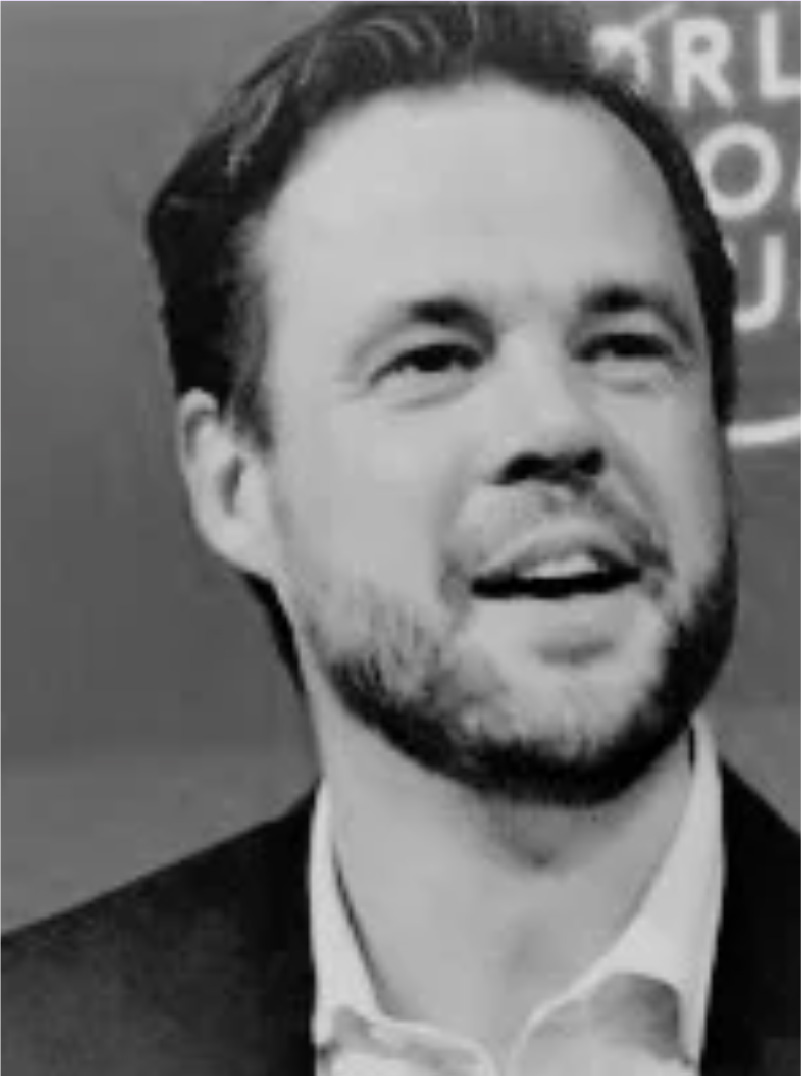AI Software & Data
ESG BenchmarkingBenchmarking
Kickstart your ESG journey with T3’s ESG benchmarking services. We delve into your current practices, compare them with industry standards, and unveil opportunities for elevation. ESG Industry Benchmarking doesn’t just offer a mirror to see your reflection but provides a lens to envision a future where your business stands tall, leading with responsibility and foresight.
WHY DO IT?
This comprehensive tool not only gauges your performance against industry standards and peers but also uncovers opportunities to innovate, lead, and inspire. With T3, you’re not just benchmarking—you’re setting the benchmark.
Significance in Today's Landscape
The European Union (EU) and the UK’s Financial Conduct Authority (FCA) are scrutinizing ESG benchmarks to enhance standardization and transparency in the rapidly growing ESG benchmark market. The EU, through its financial services unit DG FISMA and PwC, has published a feasibility study exploring the potential for establishing new minimum standards for ESG benchmarks, possibly creating an ESG equivalent to its climate transition and Paris Aligned Benchmarks. The study reveals a significant variability in the methodologies and depth of information provided by current ESG benchmarks, especially concerning the ESG factors considered and the use of ESG data providers. On the other hand, the FCA has identified “widespread failings” in ESG benchmarks, warning index providers about contributing to greenwashing due to the limited information and clarity provided about ESG metrics and their application in sustainable investment benchmarks. This lack of transparency and potential misalignment between ESG and similar non-ESG benchmarks is particularly concerning for the FCA. Both entities aim to enhance the reliability and authenticity of ESG benchmarks to guide sustainable investments effectively.
WHO DOES IT IMPACT?
Asset Managers
Banks
Fintechs
How Can We Help?
T3 can help with conducting an audit or methodology validation of the benchmarks in use or assist company with creating their own benchmarks.
Running an ESG benchmarking exercise or conducting a review involve similar steps.
The following steps can summarise it:
1
Define Objectives and Scope Identify Key ESG Indicators
- Objective: Clearly define what you want to achieve with the ESG benchmarking exercise:
- Competitive positioning against peers and industry standards
- Better risk identification and mitigation
- Grow investor confidence in your strategy and attract more funding.
- Enhance reputation and differentiate your brand in ESG space.
- Identify improvements or cost savings.
- Meet stakeholder expectations and enhance relationships.
- Access New Markets by demonstrating ESG commitment can facilitate entry into new markets where sustainability is a key consumer demand.
- Scope: Determine the ESG factors to be benchmarked, such as carbon emissions, social impact, or governance structures.
2
Identify Key ESG Indicators
- Environmental Indicators: Such as energy use, waste management, and carbon footprint.
- Social Indicators: Such as employee welfare, community involvement, and customer satisfaction.
- Governance Indicators: Such as board diversity, executive compensation, and corporate ethics.
3
Data Collection
- Data Sources: Identify where you will get the data for benchmarking, e.g., company reports, surveys, or external databases: GHG protocole, International Energy Agency (IEA) or Our World in Data amongst others
- Data Quality: Ensure the data is accurate, reliable, and comparable across the entities being benchmarked.
4
Choose Benchmarking Entities
- Identify companies or entities you want to benchmark against. These could be within the same industry or across different sectors.
- Ensure that the entities chosen are relevant and comparable to your organization.
5
Develop a Technical Specification
- Purpose: Define the purpose of the ESG benchmarking.
- Scope: Outline the scope, including the ESG factors considered.
- Data Collection: Detail the methods for data collection and validation.
- Analysis: Describe how the data will be analyzed and compared.
- Indicators: Define the ESG indicators and metrics to be used.
- Weighting: Specify if certain indicators will be weighted more heavily than others.
- Software: Specify any software or tools that will be used for data collection, management, and analysis.
- Security: Detail how data security and privacy will be maintained.
- Format: Define the format of the benchmarking report.
- Frequency: Specify how often the benchmarking will be conducted and reported.
- Ensure that the benchmarking exercise adheres to relevant laws and ethical guidelines.
- Data Analysis: Analyze the data using the defined methodology.
- Comparison: Compare your ESG performance against the chosen entities.
- Results: Present the findings, highlighting areas where your organization excels or lags.
- Recommendations: Provide actionable insights and recommendations based on the findings.
6
Implement Improvements
- Develop a strategy to implement the recommendations from the benchmarking exercise.
- Ensure continuous monitoring and regular updates to the strategy.
7
Choose Benchmarking Entities
- Identify companies or entities you want to benchmark against. These could be within the same industry or across different sectors.
- Ensure that the entities chosen are relevant and comparable to your organization.
8
Continuous Review
- Regularly review and update the benchmarking exercise to reflect any changes in ESG factors, industry standards, or organizational goals.
9
Stakeholder Engagement
- Engage with stakeholders, including employees, investors, and customers, to communicate findings and improvements.
- Ensure transparency and authenticity in communications.
Notification
- Technology Integration: Consider integrating technology to automate data collection and analysis for ongoing benchmarking.
- Collaboration: Engage with other organizations or industry groups for collaborative benchmarking.
Want to hire us?
Please fill out the form, and our experts will reach out to you
Our ESG Experts

Tom B.
ESG Product Development Expert
- Develop ESG Data Analytics Platforms for Top 3 data ESG Data provxiders globally
- Lead Sustainability Management Software for measuring energy use, waste production, and carbon emissions.
- Build Supply Chain Transparency Tools: ensure that suppliers are adhering to environmental and social standards, and they can provide transparency to stakeholders about the company’s supply chain practices.
- In-house Climate Risk Assessment Tools

Christian K.
ESG Pioneer & Renowned Expert (Advisor)
- Full Professor of Sustainability
- Inventor of the first measurement system for the UN SDGs
- Founding Scientific Director: SDG Index & Dashboards
- Advisor on Sustainability & ESG to FTSE 500 companies, governments and International Org.
- Published author (Cambridge University Press)
- Panellist & Speaker: Davos, UN, EU, etc.
- In the press: CNN, BBC, Le Monde, Harvard Business Review
- Expert member: WEF Crypto Sustainability Coalition (Web 3, Blockchain)

David C.
ESG Strategy Climate Risk Expert (Advisor)
- Head of Climate Risk and TCFD for UNEP FI programs for over 50 banks and investors
- Trained Central banks & supervisors globally on climate risks & financial implications
- Senior Associate Cambridge Institute for Sustainability Leadership (CISL)
- Industry standards for scenario definition & analysis with Cambridge, CICERO, NIESR, and PIK
- Led the technical workstream for GFANZ
- ex- Associate Partner for Oliver Wyman: worked on net-zero alignment and target-setting
- Published author: Forbes, UN, Times

Nilesh N.
ESG Reporting specialist
- Expert in SFDR, guiding financial market participants in ESG risk and opportunity disclosures.
- GRI: ensuring transparent and comprehensive sustainability reporting for diverse stakeholders.
- Deep knowledge of the EU Taxonomy, assisting businesses in aligning their activities with the EU’s green objectives.
- Skilled in other prominent ESG reporting frameworks, including CDP and SASB
- Offers strategic insights and actionable roadmaps for organisations aiming to enhance their ESG reporting

Jason N.
Model Validation Lead
- Extensive experience in validating ESG data models for leading financial institutions and Fortune 500 companies.
- Proven track record of ensuring accuracy and consistency of ESG data through comprehensive validation processes.
- Collaborated with top ESG rating agencies to enhance model robustness and reliability.
- Conducted innovative research on emerging ESG data validation techniques.
- Acknowledged as a thought leader in the field, sharing insights at international ESG conferences.

Thomas R.
ESG Data Experts
- Specialist in ESG data modeling for private sector ex- MSCI
- Skilled in developing robust sustainability models
- Proficient in analyzing and interpreting ESG data.
- Collaborated with companies to implement effective ESG data models at companies like RepRisk.
- Contributed to advancing ESG data modelling practices.
- Presented insights at industry conferences, fostering knowledge exchange.

Sven A.
Hydrogen specialist
- Collaborated with prestigious companies like Shell, Toyota, and Siemens in hydrogen production, storage, and distribution technologies.
- Contributed to cutting-edge fuel cell systems and electrolyzers for efficient hydrogen utilization within Automobile Industry
- Implemented safety protocols and risk assessments for notable projects with Total and ExxonMobil.
- Led successful hydrogen R&D with top 10 Universities
- Advised on hydrogen strategies for renowned companies in Energy Sector

Kayla K.
Circularity Speciatist
- Pioneered circular economy strategies with prestigious companies like Unilever, IKEA, and Coca-Cola.
- Developed sustainable product design principles at Procter & Gamble and Patagonia.
- Implemented closed-loop systems for waste reduction with Nestle and PepsiCo.
- Led successful circularity initiatives at H&M and Levi’s, fostering eco-friendly practices.
- Consulted with Walmart and Target on circular supply chain models.
- Recognized speaker at circular economy forums hosted by World Economic Forum and Ellen MacArthur Foundation.

Joseph B.
ESG- Real Estate
- Deep expertise in integrating ESG principles into real estate, championing sustainable development through BREEAM, WELL, and LEED certifications.
- Proficient in the nuances of the Sustainable Finance Disclosure Regulation (SFDR), guiding real estate investment funds in ESG disclosures and compliance.
- Led the adoption and implementation of BREEAM, WELL, and LEED standards across real estate portfolios, ensuring properties meet top-tier environmental and well-being benchmarks.

Doyin A.
Energy Transition & Net Zero Specialist (Advisor)
- Climate disclosures, decarbonisation, and environmental management expert and strategist with previous roles at the Environment Agency, Energise, OFGEM, DECC, Balfour Beatty, WSP
- Led and managed diverse public and private sector consultancy and advisory projects and programmes, as well as policy and regulations development
- Former Head of Sustainability at University of Wolverhampton and Decarbonisation Manager for Greater London Authority
- Certified Low Carbon Consultant (CIBSE)
- Proficient in environmental certifications & sustainability frameworks, incl. ISO14001, ISO50001, GRI, GRESB, SASB, and SECR
